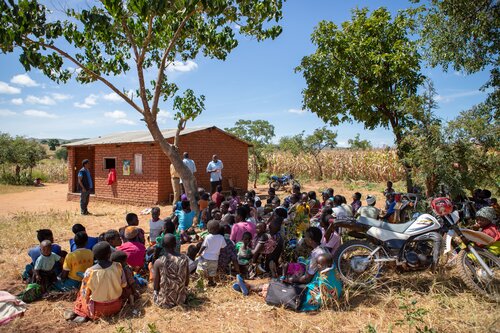UHC2030 hosted its annual UHC Day parliamentarian town hall to...
21 September 2020
Findings from a consultation on the WHO social participation handbook.

A recent consultation with civil society organizations (CSOs) has reinforced the importance of practical and flexible guidance for meaningful social participation, communicating the benefits of social participation to decision-makers, and widening access of marginalized groups to national policy and decision-making processes.
Social participation mechanisms are vital for responsive health reforms that leave no one behind in efforts to achieve universal health coverage (UHC).
This is why WHO is developing, with contributions from civil society organisations and UHC2030, a social participation handbook to provide best practice guidance. The handbook aims to provide best practice guidance to policymakers on how to effectively and meaningfully engage with populations, civil society, and communities for policy- and decision-making.
In the spirit of participation, it is important to get feedback from CSOs on contents of the handbook. So UHC2030 and WHO held a consultation to find out more. In December 2019, UHC2030 and its Civil Society Engagement Mechanism (CSEM), WHO and the UHC Partnership launched the consultation for civil society actors to provide feedback on the contents of the ‘Handbook on Social Participation for UHC’.
Find out more about the consultation process, who took part and what they said.
Overall, the process reiterated the need for practical guidance for meaningful social participation, communicating the benefits of social participation to decision-makers, and widening access of marginalized groups to national policy and decision-making processes.
The handbook will be released at the occasion of UHC Day on 12 December.
Photo © WHO / Mark Nieuwenhof
More UHC2030 News
A global health financing emergency threatens progress toward...
UHC2030 at HSR2024: Advancing equity and inclusion in health systems through civil society knowledge
UHC2030, in collaboration with the SUPPORT-SYSTEMS research...
